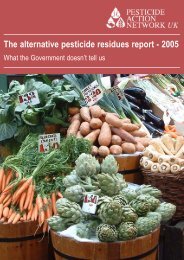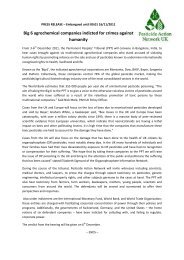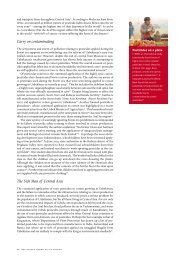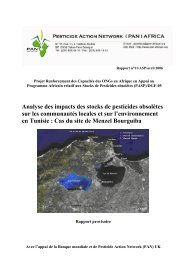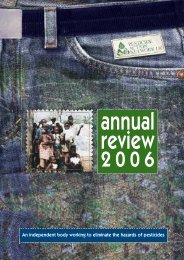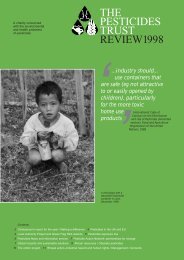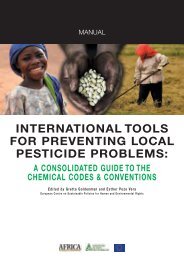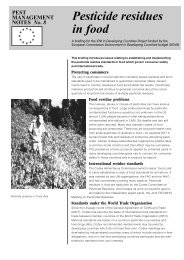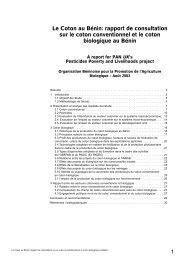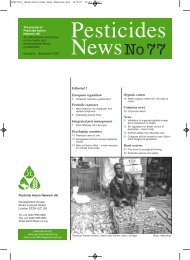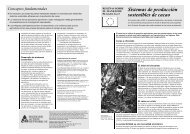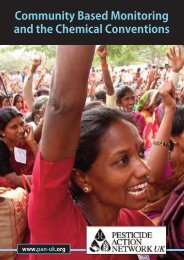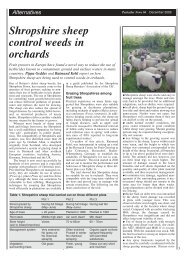Tanzania Multi Stakeholder Map - WebNG
Tanzania Multi Stakeholder Map - WebNG
Tanzania Multi Stakeholder Map - WebNG
You also want an ePaper? Increase the reach of your titles
YUMPU automatically turns print PDFs into web optimized ePapers that Google loves.
provides early warning for developing countries to avoid mistakes made in<br />
developed countries through information exchange.<br />
In addition, pesticides will continue to be used in the foreseeable future in order<br />
to meet the demand of increased food production to feed the increased World<br />
population. The Convention help developing countries to avoid using pesticides<br />
that are known to be harmful to human health and the environment and highly<br />
toxic pesticides that cannot be handled safely by small farmers under conditions<br />
of use. The convention therefore promotes sustainable agriculture through use of<br />
pesticides that are safer to the environment and end users. This will increase<br />
production thereby combating hunger, disease and poverty.<br />
7.0 CONCLUSION: The benefits of the Rotterdam convention to developing<br />
countries like <strong>Tanzania</strong> need no emphasis. The Government as a party to the<br />
convention has responsibility to implement the provisions of the convention for<br />
the protection of human health and environment against hazardous and highly<br />
toxic chemicals and pesticides. The government needs to participate fully in<br />
order to contribute to the shared responsibility and cooperative efforts among<br />
Parties, otherwise the signing and ratification will be meaningless. Putting in<br />
place an effective and efficient implementation mechanism will help in reaching<br />
informed decisions related to import of chemicals under the convention. There is<br />
therefore a great need to identify key and proper players (well trained, informed<br />
and committed) and the required resources to support the efforts already in<br />
place. Initiation of parallel programmes will have an added advantage if<br />
duplication is very much avoided.<br />
REFERENCES<br />
1. http://www.pic.int. – For Rotterdam convention text<br />
2. Rotterdam Convention, Overview, Rotterdam Convention Secretariat,<br />
Revised 2005<br />
3. Rotterdam Convention, Text and Annexes, Revised 2005<br />
4. E Mashimba & J Akhabuhaya, Challenges in National Implementation<br />
of Prior Informed Consent (PIC) Procedure <strong>Tanzania</strong>n Experience, A<br />
paper presented at the Regional Workshop on Rotterdam Convention<br />
on the Prior Informed Consent (PIC) Procedure for Certain Hazardous<br />
Chemicals and Pesticides in International Trade, UNEP – Nairobi, 13 th<br />
June 2000<br />
5. E Mashimba, Implementation of the Rotterdam Convention Prior<br />
Informed Consent (PIC) Procedure in <strong>Tanzania</strong>, A paper presented at<br />
the Training Workshop for Executives on International Conventions to<br />
Promote Chemical Safety, Paradise Hotel, Bagamoyo, 9 th – 11 th<br />
August 2004.<br />
83




